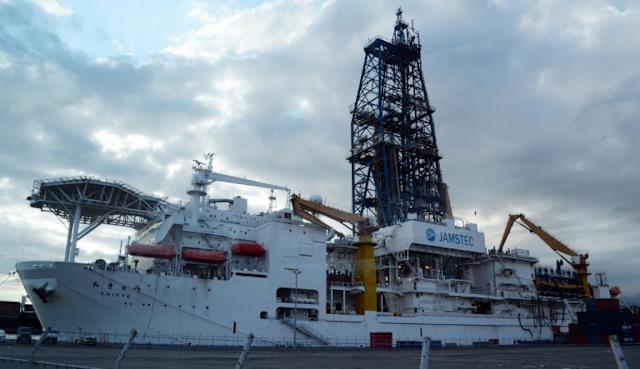
Japan's Pioneering Deep-Sea Mining Initiative
Japan is set to take a significant step in the field of resource extraction by launching the world’s first deep-sea mining test for rare minerals in January 2026. This ambitious project will involve a research vessel named Chikyu, which will be deployed to extract mineral-rich mud from the deep seabed near Minami-Tori-shima, a remote island located in the Pacific Ocean.
The project, led by Shoichi Ashi, aims to dig as deep as 5,500 meters below sea level. The primary objective is to test the effectiveness of mining equipment and evaluate its performance under real-world conditions. During the trial phase, Japan plans to retrieve approximately 35 tonnes of seabed mud, which could contain up to 2 kilograms of rare earth minerals per tonne. These minerals are essential components in various high-tech industries, including electric vehicles, computers, wind turbines, and advanced weaponry.
Currently, China holds a dominant position in the rare earths market, producing more than two-thirds of the world's supply and managing over 92% of the refining processes. In response to this imbalance, Japan is strengthening its partnerships with countries such as India, the United States, and Australia to secure a more stable and diversified supply of critical materials.
Experts believe that this initiative has the potential to reshape the global dynamics of high-tech supply chains. However, the project also raises several concerns. Deep-sea mining remains a contentious issue due to its potential environmental impact and the geopolitical tensions it may provoke. Recent actions by China, such as restricting the export of certain rare minerals, have further intensified the urgency for alternative sources. Additionally, the United States has been advocating for accelerated mining activities in international waters, adding another layer of complexity to the situation.
The International Seabed Authority (ISA) is scheduled to hold a crucial meeting this month to discuss the development of global regulations for deep-sea mining. Environmentalists and policymakers alike are closely watching these discussions, as they will play a pivotal role in determining the future of this industry. Concerns about the long-term ecological consequences of deep-sea mining, along with political rivalries, are expected to influence how quickly this practice becomes widespread.
As Japan moves forward with its deep-sea mining test, the outcomes of this project could serve as a model for other nations seeking to access new sources of critical minerals. It also highlights the growing importance of securing resources in an increasingly competitive global landscape. While the economic benefits of such ventures are clear, the challenges they present—both environmental and geopolitical—must be carefully addressed to ensure sustainable and responsible practices.
This initiative underscores the evolving nature of resource competition and the need for international cooperation in managing the risks and opportunities associated with deep-sea mining. As technology advances and demand for rare minerals continues to rise, the decisions made today will shape the future of global supply chains and environmental stewardship.
Post a Comment